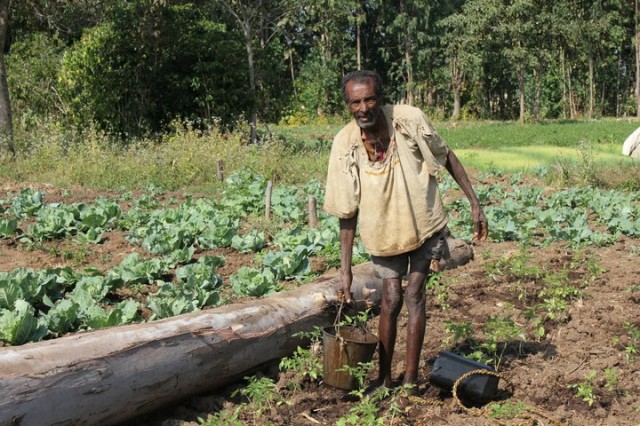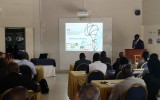
Famine prevention, food security and hunger
From their origins in the need to predict famines, the household economy assessment methods promoted and developed by Evidence for Development are now widely used by governments in sub-Saharan Africa to monitor food security and hunger, and to assist in the management of national food policy.
The household economy approach (HEA) is used across southern Africa to estimate the impacts of changes in prices and production on people’s ability to access food. By modelling these impacts, national governments are able to identify potential problems, the times when these are likely to be most severe, and the numbers of people who will be affected. This information provides a credible basis for food aid requests where they are needed.
Evidence for Development has provided HEA training in southern Africa through national Vulnerability Assessment Committees (VACs), which was funded by the UK Department for International Development (DfID) through its Regional Hunger and Vulnerability Programme (RHVP).
DfID also funded EfD’s pilot urban study in Namibia. This study used the individual household method (IHM), which analyses data from specific households using either whole village surveys or – for large population studies – representative samples. Using data from specific households allows the IHM to be applied in towns and cities; the diversity of these economies means that the HEA (developed for analysis of more homogenous rural economies) cannot be used reliably in urban settings.
The IHM can also be used when more precise targeting of assistance is needed and provides a strong basis for tracking changes in households over time. This makes it a powerful monitoring and evaluation tool, able to be used to increase the effectiveness and impacts of programmes and policies.
Contact us to further discuss how our methods can be applied to predicting, monitoring or responding to food security and hunger, and how we might be able to assist you or your organisation.
Our latest famine prevention, food security and hunger studies and blogs
-
New insights from latest EfD / Nasio Trust IHM study in Kenya
From their origins in the need to predict famines, the household economy assessment methods promoted and developed by Evidence for Development are now widely used by governments in sub-Saharan Africa to monitor food security and hunger, and to assist in the management of national food policy. The household economy approach (HEA) is used across southern Africa to […]
-
Integrating hydro-climate science into policy decisions for climate-resilient infrastructure and livelihoods in East Africa
From their origins in the need to predict famines, the household economy assessment methods promoted and developed by Evidence for Development are now widely used by governments in sub-Saharan Africa to monitor food security and hunger, and to assist in the management of national food policy. The household economy approach (HEA) is used across southern Africa to […]
-
Imagine all the snows of Mount Kilimanjaro had melted
From their origins in the need to predict famines, the household economy assessment methods promoted and developed by Evidence for Development are now widely used by governments in sub-Saharan Africa to monitor food security and hunger, and to assist in the management of national food policy. The household economy approach (HEA) is used across southern Africa to […]


